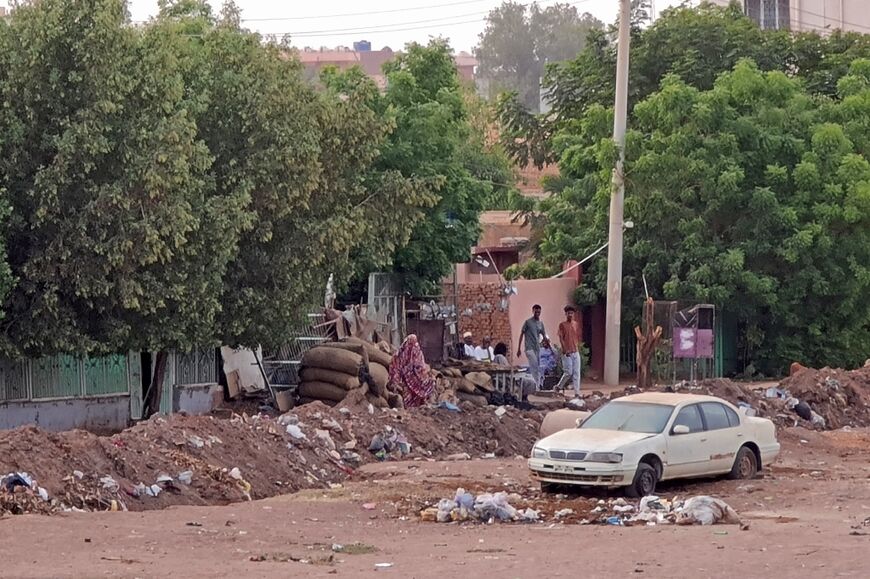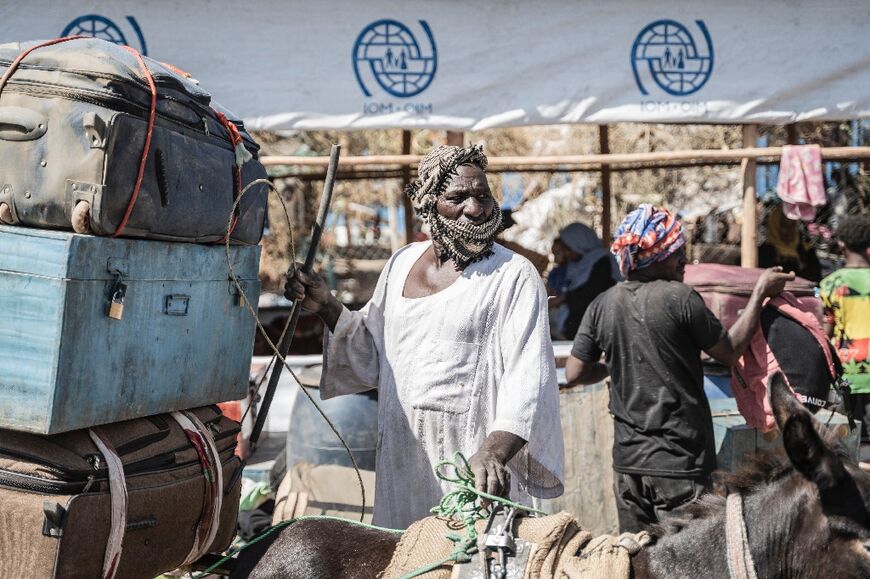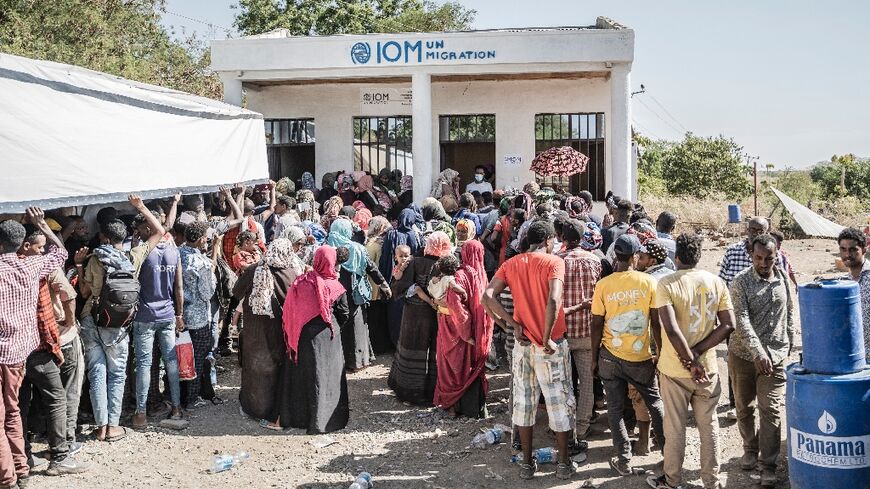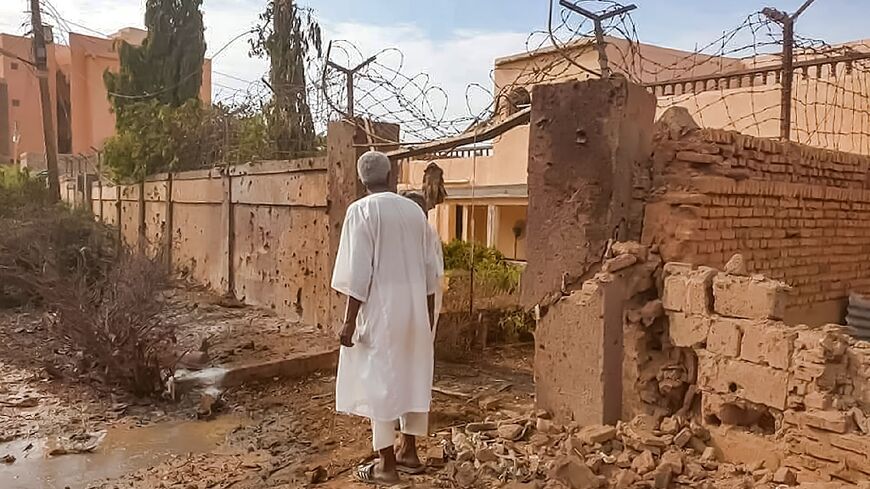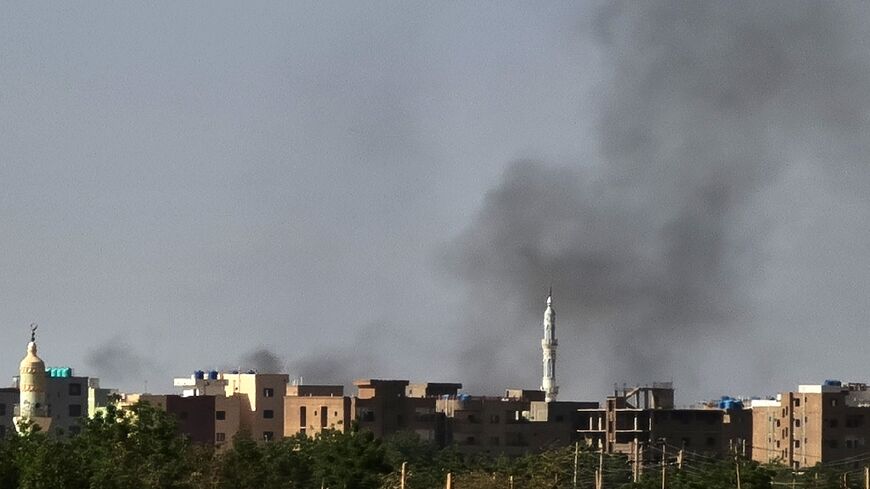Sudan warring sides make humanitarian pledge without truce
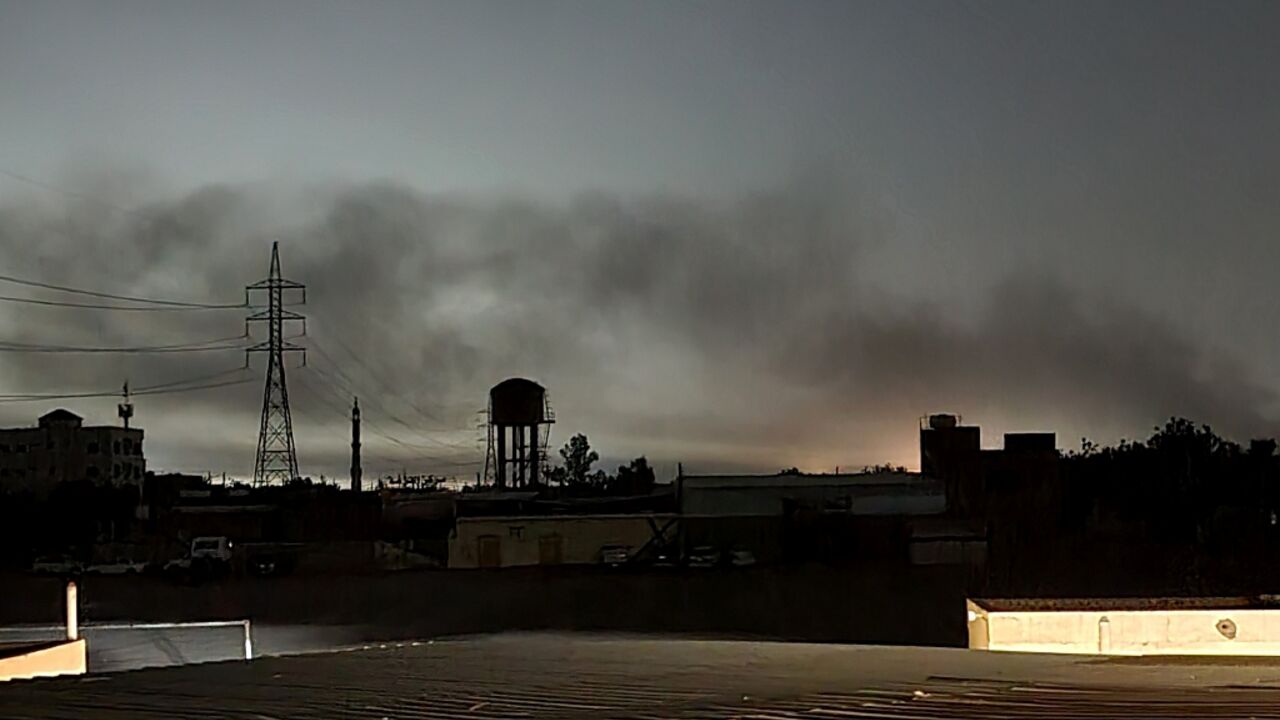
Warplanes roared overhead as explosions rocked Khartoum on Friday, just hours after Sudan's warring parties agreed to respect humanitarian principles in their spiralling conflict, without a truce in sight.
Nearly one month after the outbreak of the fighting that has killed more than 750 people and displaced hundreds of thousands, the two sides signed the agreement late Thursday at talks in the Saudi city of Jeddah.
But already by the next morning the situation on the ground appeared unchanged, with the forces of two rival generals again exchanging fire in the capital, which is home to five million people.
A witness in south Khartoum reported "fighter jets overhead and the sound of clashes and explosions", while another in the north reported "air strikes and the sound of anti-aircraft missiles".
In west Darfur, which has seen some of the bloodiest fighting, people took cover from heavy gunfire and artillery blasts, witnesses said.
Envoys for the two generals -- army chief Abdel Fattah al-Burhan and paramilitary commander Mohamed Hamdan Daglo -- had agreed in Jeddah to "affirm our commitment to ensure that civilians are protected".
The agreement commits both sides to let in badly needed humanitarian assistance and also calls for the restoration of electricity, water and other basic services.
- Caution over talks -
The United States and Saudi Arabia, which led the diplomatic drive, said talks were ongoing with a proposal on the table for a 10-day truce, which could lead to negotiations on a longer-term end to fighting.
But US diplomats were frank about the obstacles in the nearly week-long Jeddah talks.
"This is not a ceasefire. This is an affirmation of their obligations under international humanitarian law," said a US official involved in the negotiations, adding the two sides were "quite far apart".
UN special representative Volker Perthes welcomed the agreement as a "significant first step".
The important thing is that "the two sides have committed themselves to continuing discussions under (Saudi and US) mediation", Perthes said, adding he expected ceasefire talks to resume late Thursday or Friday.
Almost 200,000 people have fled Sudan in addition to hundreds of thousands who have been displaced inside the country, the UN said Friday.
At least 18 humanitarian workers have been killed since the conflict flared on April 15, with many international agencies suspending their work.
The UN's World Food Programme said millions of dollars' worth of food was looted in Khartoum alone.
- 'Cut off' -
Beyond Khartoum, the long-troubled Darfur region has seen some of the worst unrest.
The region has been ravaged by conflict since 2003, when then dictator Omar al-Bashir armed nomadic Arab tribes to form the Janjaweed -- from which Daglo's paramilitary Rapid Support Forces stemmed -- to counter an ethnic minority rebellion.
That war left hundreds of thousands dead and more than two million displaced.
Darfur remains awash with weapons, and has seen hundreds killed and hundreds of thousands displaced during the current hostilities.
In April alone, more than 200 people were killed in clashes between an Arab community and the non-Arab Massalit minority in the Krink area of West Darfur.
In El Geneina, the capital of West Darfur state, witnesses said civilians were trying to flee artillery fire on Friday.
The UN said Darfur civilians were again being armed in the latest unrest, which has "triggered intercommunal violence", with accounts of rampant looting and arson attacks.
According to Mohamed Osman, researcher at Human Rights Watch, the people of Darfur have been "cut off", with "shops and the local market destroyed, and the main hospital not working".
- Ulterior motives? -
The conflict erupted after a power struggle between Burhan and Daglo, most recently over the integration of the latter's RSF into the army under a planned transition to civilian rule.
The Forces of Freedom and Change, the pro-democracy force sidelined in a 2021 putsch, saluted the Jeddah declaration as "a first step in the right direction".
The European Union gave it a guarded welcome. "The value of the declaration will depend entirely on whether it is honoured by the parties and transforms the situation on the ground," a spokesperson said.
"While all efforts to stop the fighting are welcome, a sustainable ceasefire... is an urgent and overdue imperative."
After previous truces evaporated, the US said the two sides also agreed in Jeddah for the first time on ways to monitor any ceasefire.
A second US official said the negotiations were "very tough" and acknowledged both sides may have ulterior motives.
"Candidly, there is some hope on both sides that the other side would be seen as being the perpetrator of violations," he said.
"We've seen violations by both sides in all the ceasefires to date and don't expect that to change."
burs-kir/jsa



